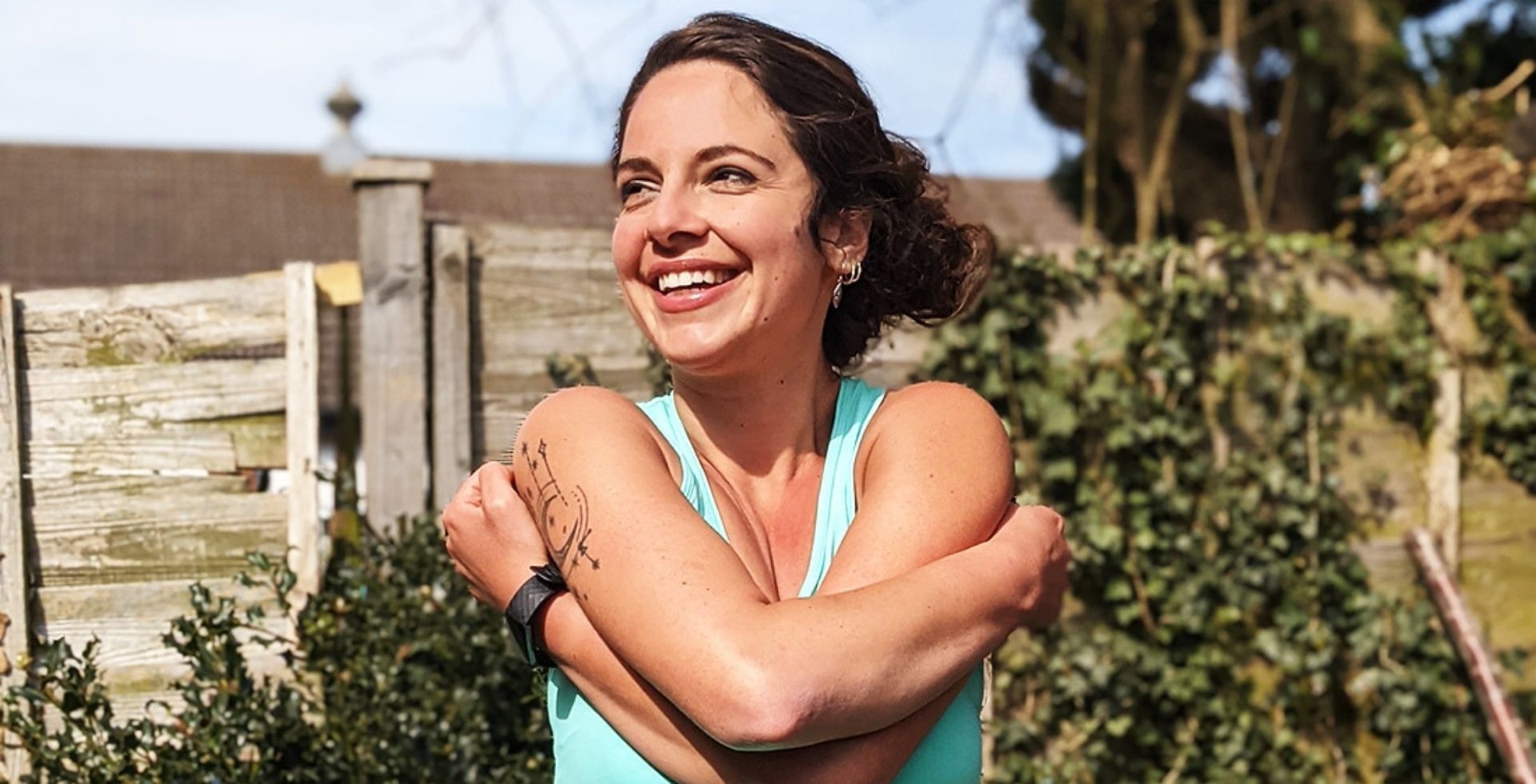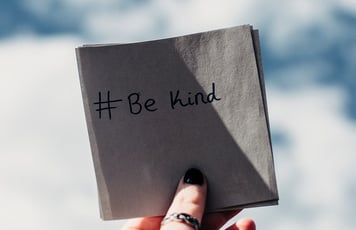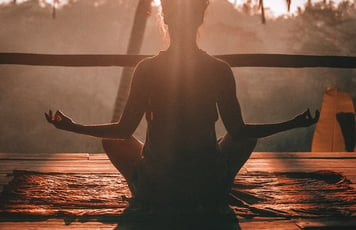
Self-love – 21 Ways to Love Yourself More


Photo by: Helen Cooper
“Oh, I shouldn’t have said that!”, “Why am I always procrastinating on things I know I should be completing much faster?”, “I look so fat today”…
Has your inner dialogue ever sounded like that? I bet it has. Congratulations, you’re part of the human tribe. We’ve all had moments like this when we’re full of self-doubt, self-judgement and regrets. It’s part of our survival mechanism to see danger and to spot the negative, but it’s also the opposite of self-appreciation, self-respect and …self-love, a term which seems to be everywhere these days.
It took me a while to understand what on earth self-love means, but I get it now. So I’m writing this post in the hopes of conveying what I’ve learnt to you and maybe helping you learn how to appreciate yourself a bit more.
If you’ve started feeling lighter and calmer, less judgmental and more aware, that’s awesome – it means you’re changing for the better:
You’ve stopped defending or explaining yourself too much
You’re saying no when you don’t want to do something
You’re prioritising your morning routines, your ‘me’ time and you turning down invitations for meetings without any guilt
You became an observer of your life instead of a judge of it.
All of these are signs that you’re becoming kinder towards yourself, and most likely, you’re beginning to love yourself more.
What is self-love
They say that awareness is the beginning of all change. We need to understand what self-love means before we can start working towards it.
Self-love has become trendy, but it’s actually quite a deep concept, and it’s at the core of our happiness. I absolutely love Jeffrey Borenstein’s description (President & CEO of the Brain & Behavior Research Foundation):
"Self-love is the appreciation you have for your self which is growing when you’re taking actions that support our physical, psychological and spiritual growth. Self-love means having a high regard for your own well being and happiness. Self-love means taking care of your own needs and not sacrificing your well-being to please others. Self-love means not settling for less than you deserve." - Jeffrey Borenstein
Content Pixie on Unsplash
Self-love can mean something different for each person because we all have many different ways to take care of ourselves. Figuring out what self-love looks like for you as an individual is an important part of your mental health. It includes any of these:
Talking to and about yourself with love
Prioritising yourself
Trusting yourself and your decisions
Being kind and true to yourself
Forgiving yourself
Saying no and setting healthy boundaries
Another way to say self-care
Listening to your body and resting when we need to
Doing something creative and appreciating your own talents
Letting go of what doesn’t work for you anymore


"Self-love means accepting yourself as you are in this very moment for everything that you are. It means accepting your emotions for what they are and putting your physical, emotional and mental well-being first." - Jeffrey Borenstein
Definition and the paradox
Talking about self-love has become popular nowadays. Some people still think about it from a narcissistic perspective: people are self-absorbed and only concerned with their own wellbeing. In this article, I’ll only be exploring the sunny side of self-love.
It’s still worth looking at both sides, to see how multi-faceted this concept is. Here are a few definitions of self-love.
"The feeling that your own happiness and wishes are important" (Oxford Dictionary)
“Regard for one’s own happiness or advantage”. The concept has been conceptualised both as a basic human necessity and as a moral flaw, akin to vanity and selfishness, synonymous with amour propre, conceitedness, egotism, narcissism, et al." (Wikipedia)
"The instinct by which one’s actions are directed to the promotion of one’s own welfare or well-being, especially an excessive regard for one’s own advantage; conceit; vanity." (Collins Dictionary)
The self-love I want to write about is a more grounded and active version of self-esteem.
Self-respect and self-kindness
Let’s go deeper and explore what self-love consists of. It’s not something fluffy and sweet that happens when you look at yourself in the mirror and tell yourself nice things. Positive self-talk helps, but it’s only a fraction of the work that goes behind developing a healthy regard for your own self. What I’ve realised over the years is that a big part of that includes self-respect and self-kindness. It’s when you can stand up for yourself, but also be compassionate towards yourself when things go wrong.
1. Quit situations, jobs and relationships that aren’t good for you
2. Stand up for yourself when you’re being mistreated
3. Don’t beat yourself up for too long when you make a mistake.
4. Have a realistic view of your strengths and weaknesses
5. When you know you need improvement in certain areas, own it. A personal growth mindset comes with self-compassion




When you know you’re changing for the better


Photo by: Lisa, Pexels
Self-love isn’t passive
Self-love is one of those things that doesn’t just come to you. You need to practice the self-love muscle, accept your flaws and fight for what you believe in in order to respect yourself more. Then, you’ll gradually fall in love with the person you’ve become.
Boundaries and saying no
Maintaining boundaries means knowing when someone is demanding way too much from us. It allows us to respectfully reject their demands and to take care of ourselves so that we can actually have more space to help others. You can’t pour from an empty cup!
How to know when you’re lacking self love
As you’re becoming more attuned with what you need to feel more whole and happy with who you are, it will become easier to spot the signs that you might be lacking self-love in certain areas.
1. Unfulfilling relationships
You might be hyper self-focussed (“What will others say about me?”), too sensitive or you might feel like you need to constantly justify yourself. If you’re constantly on the defence, that doesn’t help others connect with you. Healthy relationships happen when you’re healthy inside.
2. You’re needy
If you constantly seek validation, affection and affirmation, that’s a sign that you’re looking for others to fill the void in your soul. Being clingy is a trait typical for insecure people and it pushes others away.
3. Being a perfectionist
If you feel quite imperfect in certain areas of your life it’s very likely that you’re subconsciously trying to compensate by being ‘the best’ in other areas – whether it’s your work, your looks, the way you raise your children. The truth is that by striving to be so good in these aspects, you’re trying to mask how inadequate you feel in other aspects of yourself.
4. You find it hard to express your needs
Vocalising your needs seems tough, but unless you express what you want, others won’t be able to read your mind. You risk being misunderstood and dissatisfied.
5. You’re not assertive
When you lack confidence, you’re usually afraid to speak up in case you offend others by being too direct. Remember how I was saying that self-love is an active thing? That means that you actively need to say what you feel and to be bold. It’s not easy and I’m still working on it!
6. Afraid of making mistakes or of making a fool of yourself
If you’re overly cautious that you’ll mess things up or constantly overthink how others perceive you, these are signs that you need to work on your self-esteem.
7. Showing yourself only when you’re happy
You might be trying to hide your vulnerability by being extra positive, outgoing and loud. That means that you’re not accepting the parts of you that suffer and feel shy, inadequate and simply not enough. What I’ve learned in the past year is that people are amazingly understanding and they’ll appreciate you opening up and dropping the social mask.
21 ways to love yourself more
I hope that I haven’t scared you with this exhaustive list of self-love issues! The good news is that there is an even longer list with things you can do to love yourself more.
1. Satisfy your needs first before you start helping everyone else
You do you first. Then you can help the rest of the world.
2. Chase your dreams until you get them
Ask yourself what you really, really want… every day and take little steps in the direction of your desires.
3. Quit the comparisons
Accept that everyone is on their own journey.
4. Let go of people that don’t serve you anymore
That means any toxic relationships and friendships that drain your energy. There will be so much more energy left for you!
5. Embrace your past
Let things go. Whatever you’ve done, said or failed to achieve in the past, is history. Time to move on and focus on the present and future.
6. Welcome the mistakes
Yes, that’s right. Treat the mistakes as a gift sent from the Universe that is here to teach you a wise lesson.
7. Exercise often
This is a great way to release happy hormones while developing a fit body and practising goal setting.
8. Journal every day
Keeping a daily journal is a great way of getting to know yourself, all the hidden parts that are waiting to be discovered.
9. Be vulnerable
You’ll be surprised how much being open with others will validate your feelings and how many people will show you true kindness and understanding. Of course, it’s a bit tricky if you open up to people who aren’t as kind, but they are usually the exception.
10. Be a good friend
Help others even when you don’t feel like it. When you lift others up, you lift yourself too.
"If you light a lantern for another, it will also brighten your own way" - Nichiren Daishonin
11. Say no often and respectfully
It’s one of my biggest lessons. When you say no to demands that are crossing your boundaries, you say yes to what truly matters to you. This is one of the best ways to cultivate self-respect.
12. Process your fears and anxieties
Don’t run away from your fears and regrets. They have this funny way of finding their way into your life anyway! Instead, face them courageously and process them. When you welcome all of your emotions, you welcome all of you. That, on its own, can help alleviate most of your anxieties and to free up a lot of headspace.
13. Accept your body exactly as it is
I’m still not sure if I subscribe to the #bodypositivity movement as I find it pressuring to have to feel positive towards my body if I’m very aware of its imperfections (especially if I’ve put on a bit of weight). What I’ve began to really enjoy instead is #bodyacceptance. It means accepting your body as it is without the need to be madly in love with it.
14. Make space for Me time
Schedule time for slowing down and doing the things you enjoy the most. It doesn’t matter how often you do it and how long these intervals of time are, but prioritising your alone time is crucial for your balance. One great way to do it is to introduce Self-care Sundays into your weeks.
15. Seize opportunities
Be brave. If you have a dream that you’ve been ignoring and spot an opportunity, go get it! Even if it means a bit of uncertainty in the short-term, your Future Self will be very grateful to you for acting on that.
16. Feel all the feels
Feel pain and joy as fully as you can and don’t try to run away from them. When you let yourself feel everything, it sets you free.
"Suffer what there is to suffer, enjoy what there is to enjoy. Regard both suffering and joy as facts of life." - Nichiren Daishonin
17. Be grateful for the little things
Feeling appreciation on a daily basis for little things like the sunshine, your coffee mug, the kind text a friend sent you, adds up. You start feeling lighter and more joyful every day.
18. Celebrate your little victories
Try listing the little successes you have throughout the day. Then write down what these say about you. It could be something as simple as: “I did all my food shopping, hoovered my room and cleaned the bathroom. It means I’m organised and able to rise above my laziness”. Or: “I turned down the invitation to see a friend as I wasn’t feeling like socialising today. It means I’m able to listen to prioritise my wellbeing and my need to stay on my own”.
19. Speak your mind
Get into the habit of speaking your mind. Boldness is like a muscle — it grows the more you exercise it. Don’t wait for permission to take a seat at the table. Join the conversation. Contribute your thoughts. Take action, and know that your voice is just as important as anyone else’s.
20. Overwrite your inner critic
Whenever you notice that your internal dialogue is particularly mean, try to overwrite it by saying that you’re doing your best. We all have inner critiques, but these aren’t helpful If you focus on celebrating yourself instead, you’ll gradually start to love yourself more and more!
21. Accept that you can’t control everything.
If you’ve read my article about groundlessness, you know that it’s all about surrendering to the unknown. Thinking that we have ground under our feet at all times is an illusion.
Understanding that life is, by default, unpredictable and ever-changing will free you from getting attached to specific outcomes. This will lead to inner peace.
How to love yourself: key takeaways
Even if you don’t feel fully in love with yourself yet, it’s okay. It takes time to overwrite old patterns of self-doubt, self-judgement and limiting beliefs.
Remember these key points:
Self-love is a very important element of your happiness
It’s something active you take time to develop
When it’s present, you feel lighter and calmer
It’s something everyone can develop if they set firm boundaries and prioritise themselves without being mean to others
It’s important to recognise the signs of the lack of self-love
There are so many ways you can cultivate self-esteem and self-respect Take your time. Self-love is a beautiful journey!




Sign up for the newsletter
Do you want to receive wellness content, pretty photos and marketing tips straight into your inbox?


